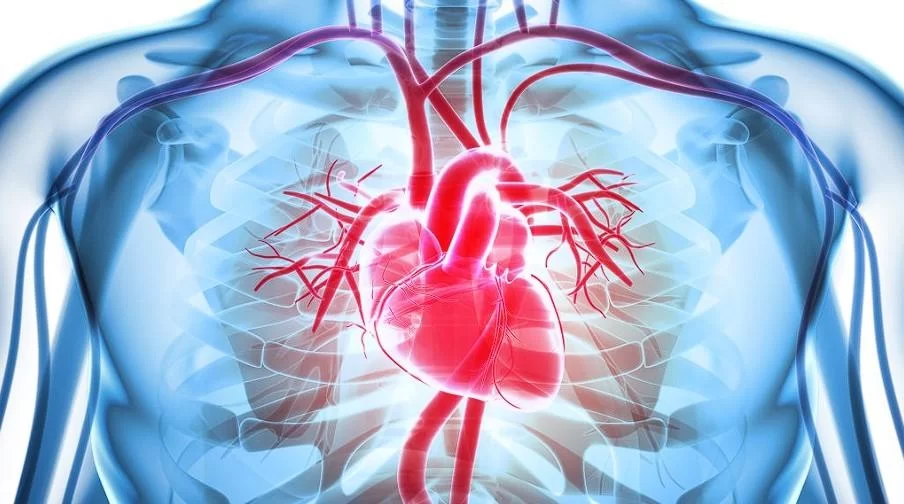How to Recognize the Early Symptoms of Heart Disease – A Guide to Early Detection
- 1. Understanding Heart Disease and Its Risks
- 2. Early Symptoms of Heart Disease You Should Never Ignore
- 3. Preventing Heart Disease and Detecting It Early
- 4. Real-Life Stories: Early Detection Saves Lives
- 5. When to Seek Medical Help for Heart Disease Symptoms
1. Understanding Heart Disease and Its Risks
Heart disease is one of the leading causes of death worldwide, yet many people are unaware of its early signs. Often, the symptoms can be subtle and easy to overlook. It is essential to understand the basic causes of heart disease, such as high blood pressure, high cholesterol, smoking, and obesity. When left untreated, these factors can lead to conditions such as heart attacks, strokes, and heart failure. The key to preventing such complications is recognizing the early symptoms of heart disease, which can allow for early intervention and treatment.

2. Early Symptoms of Heart Disease You Should Never Ignore
Heart disease doesn't always present itself in dramatic ways. Often, the early symptoms are mild and easy to overlook. Some common signs to watch out for include:
- Chest pain or discomfort: A feeling of pressure or tightness in the chest, which may come and go.
- Shortness of breath: Difficulty breathing, especially during physical activity or even at rest.
- Fatigue: Unusual tiredness or lack of energy that doesn't improve with rest.
- Dizziness or lightheadedness: Feeling faint or dizzy, especially when standing up quickly.
- Swelling in the legs or ankles: Unexplained swelling, which may indicate fluid retention caused by heart problems.
These early signs should not be ignored, as they can indicate that the heart is under stress. If you notice any of these symptoms, it’s important to seek medical advice as soon as possible.
Atlanta Heart Specialists
atlanta heart specialists
4375 Johns Creek Pkwy #350, Suwanee, GA 30024, USA

3. Preventing Heart Disease and Detecting It Early
Early detection of heart disease can make all the difference in preventing severe complications. Regular check-ups with your healthcare provider are crucial, especially if you have risk factors such as a family history of heart disease, high blood pressure, or diabetes. Here are a few steps to reduce your risk:
- Maintain a healthy diet: Eating a balanced diet rich in fruits, vegetables, and whole grains can help lower cholesterol and blood pressure.
- Exercise regularly: Physical activity strengthens the heart and helps control weight, blood pressure, and cholesterol levels.
- Quit smoking: Smoking is a major risk factor for heart disease, so quitting is one of the best ways to protect your heart.
- Manage stress: Chronic stress can contribute to heart disease, so finding ways to manage stress is important for heart health.
Routine screenings for cholesterol, blood pressure, and glucose levels can also help detect early signs of heart disease before symptoms appear.
4. Real-Life Stories: Early Detection Saves Lives
Many people have shared their experiences with recognizing the early symptoms of heart disease and how it saved their lives. For example, a woman in her 40s began experiencing shortness of breath and occasional chest discomfort. At first, she thought it was just stress or fatigue, but after discussing her symptoms with her doctor, she was diagnosed with early-stage heart disease. Thanks to early intervention, she was able to make lifestyle changes and avoid a heart attack. Stories like this highlight the importance of recognizing the early symptoms of heart disease and acting quickly.
5. When to Seek Medical Help for Heart Disease Symptoms
If you experience any of the early symptoms mentioned earlier, it’s important to consult with a healthcare professional immediately. Early detection and treatment can significantly reduce the risk of complications, including heart attacks. A healthcare provider may recommend lifestyle changes, medications, or other treatments to manage the condition. In some cases, further testing such as an electrocardiogram (ECG), stress tests, or imaging may be necessary to assess the heart’s health more closely.
In conclusion, learning how to recognize the early symptoms of heart disease can help you protect your health and improve your quality of life. Don’t wait for symptoms to worsen—take charge of your heart health today. If you're looking for a comprehensive solution to support your heart health, explore our range of heart health products designed to help you maintain a healthy heart. Click here to learn more about heart health solutions and take action for a better tomorrow!






















Deborah Heart and Lung Center
deborah heart and lung center
200 Trenton Rd, Browns Mills, NJ 08015, USA